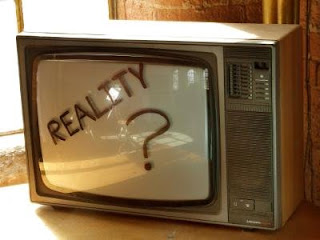 New technologies contribute to the number of ways that war is reported. For example, the Internet has helped to shape audience responses by opening them up to diverse and alternative voices. The Oatar-based AI Jazeera network was a TV and web-based organisation that was a well-known media source during the second Gulf War. This website showed devastating images and reports from bombsites around Baghdad. (Schwartz, 2003) Western media organisations labeled these broadcasts as unethical because they portrayed images of suffering and humiliation, despite the fact that they showed us what was really going on. Similar to reality television, footage from the war is edited and manipulated by mainstream media to show us what they think we want to see. You can check out a news article about war as reality television here: http://www.smh.com.au/articles/2003/03/26/1048354631440.htmlww.smh.com.au/articles/2003/03/26/1048354631440.html
New technologies contribute to the number of ways that war is reported. For example, the Internet has helped to shape audience responses by opening them up to diverse and alternative voices. The Oatar-based AI Jazeera network was a TV and web-based organisation that was a well-known media source during the second Gulf War. This website showed devastating images and reports from bombsites around Baghdad. (Schwartz, 2003) Western media organisations labeled these broadcasts as unethical because they portrayed images of suffering and humiliation, despite the fact that they showed us what was really going on. Similar to reality television, footage from the war is edited and manipulated by mainstream media to show us what they think we want to see. You can check out a news article about war as reality television here: http://www.smh.com.au/articles/2003/03/26/1048354631440.htmlww.smh.com.au/articles/2003/03/26/1048354631440.htmlThe story of “Saving Private Jessica Lynch” is a perfect example of how the media can manipulate the coverage of war. While being held captive Jessica was saved by US marines. The details of this story were later proved to be extremely fabricated. (Schwartz, 2003) The real reason it was broadcast was to attempt to balance out the negative and disturbing accounts from the war with a feel good story.
Despite the new technologies available there are still certain details from war that are not shown to the public, and the media is able to manipulate and exaggerate certain stories to influence peoples perceptions. It is easy to see how reporting of the war has become a form of entertainment. The media edits and distorts the information shown instead of simply presenting the true facts, when in times of conflict people have a right to know the truth, no matter how shocking it might be.
references
Inside Al-Jazeera. The Media Report (2004) http://www.abc.net.au/rn/talks/8.30/mediarpt/stories/s1147836.htm
Schwartz, J 2003, ‘A cast of thousands: the media and the staging of Gulf War', Australian Screen Education , no. 32, Spring, pp. 1-6.